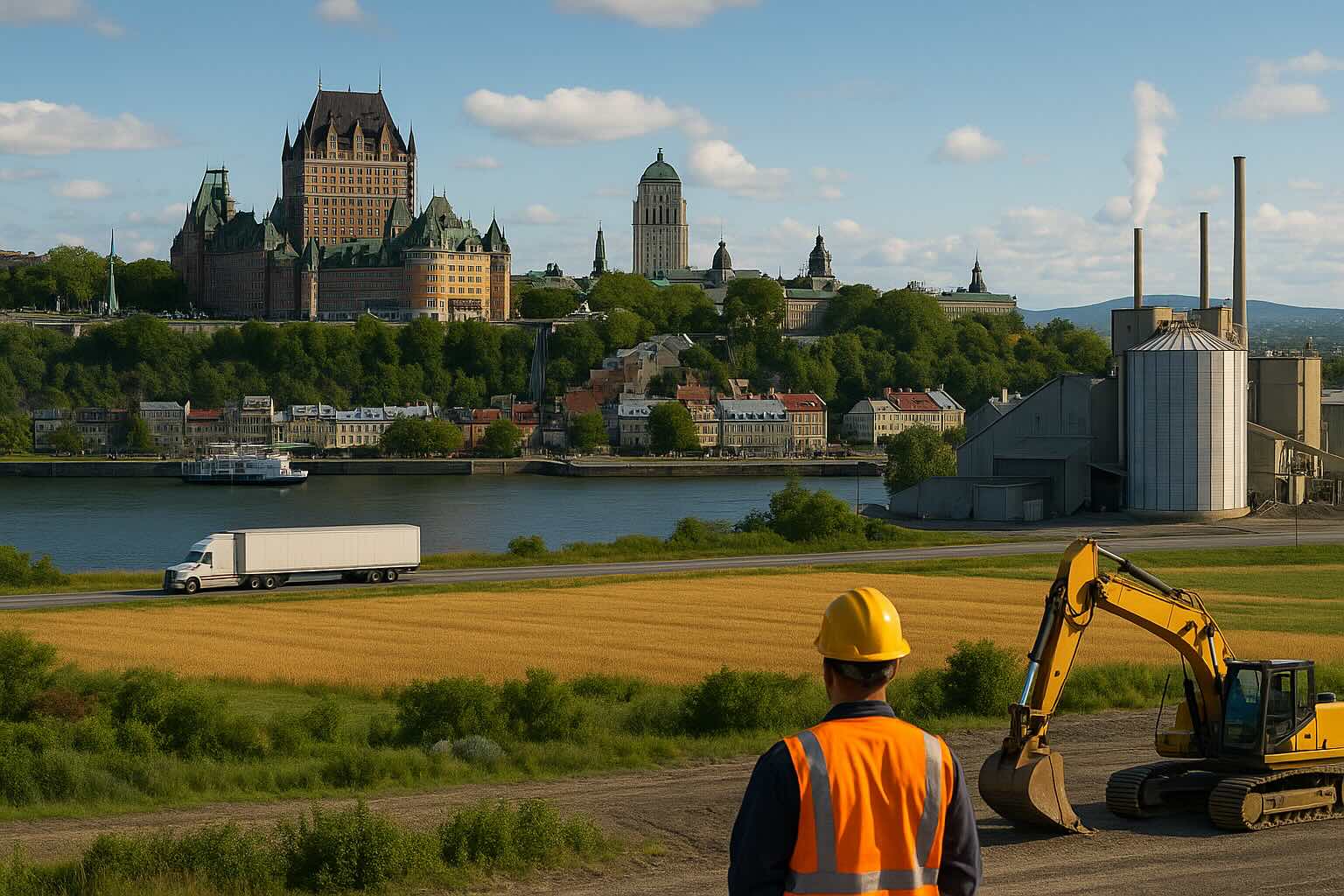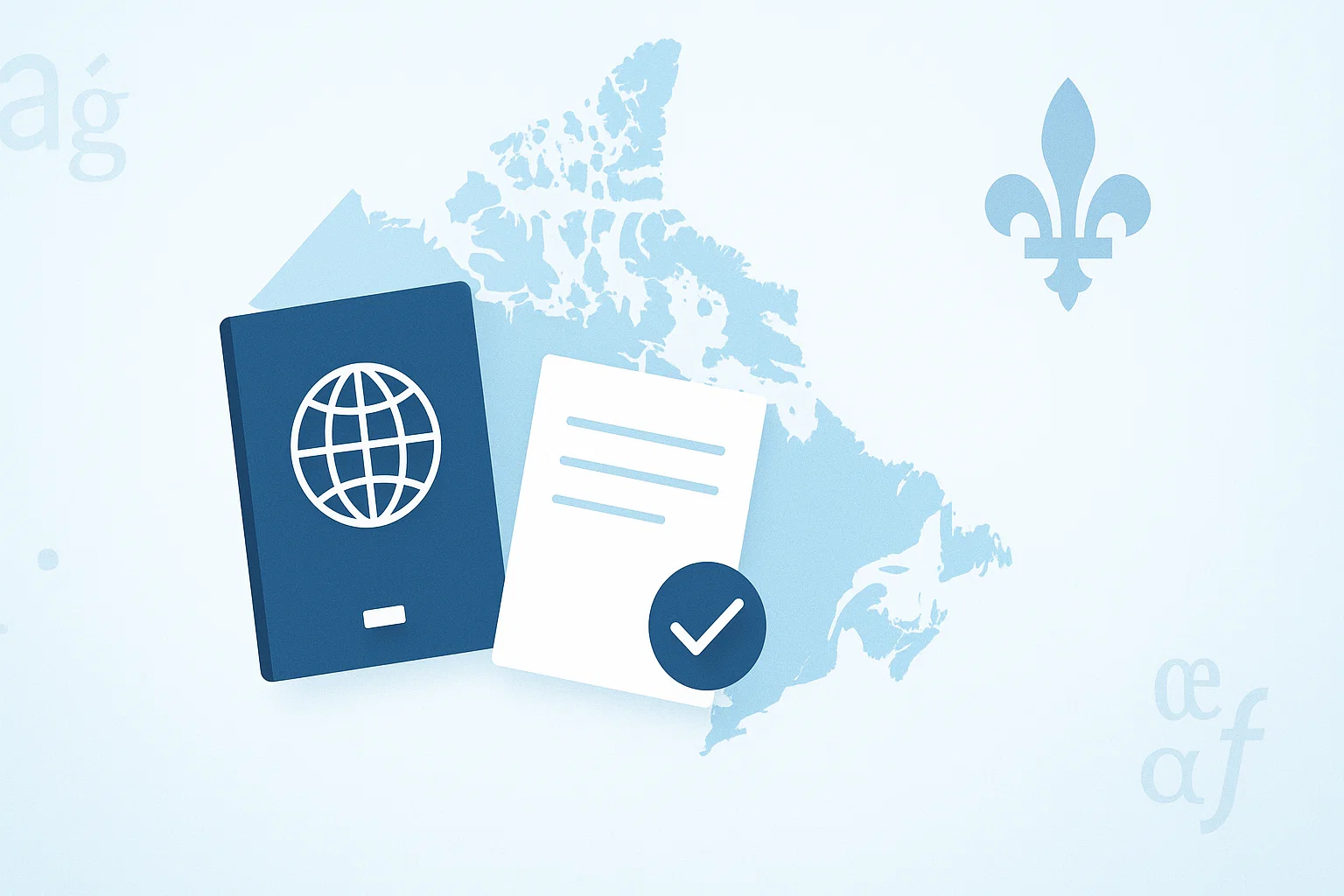
Quebec's immigration ministry took a key step forward on July 31, 2025, signaling a new implementation phase for its new Skilled Worker Selection Program (PSTQ). In its latest draw, a total of 273 candidates qualifying under the "Intermediate and Manual Skills" stream were invited to apply for a Quebec permanent selection certificate. This is the first time since the PSTQ program was launched earlier this year that a draw has been conducted specifically for this category of workers.
Draw Details: A Focus on Regional Labor Markets
According to official information, the invited candidates were selected from the Arrima immigration applicant bank on July 28, 2025, at 8:00 a.m. To receive an invitation, applicants had to meet three strict criteria:
- Arrima Score: Have a score of 661 points or higher.
- Place of Residence: Reside in Quebec at the time of application, but outside the Montreal Metropolitan Community. This criterion clearly reflects the government's policy objective of directing new immigrants to regions beyond Montreal to promote balanced development across the province.
- Work Experience Requirement: Have at least 24 months of work experience in the last five years, with a minimum of 12 of those months gained in Quebec in their main occupation.
The Intermediate and Manual Skills Stream Explained
The Intermediate and Manual Skills stream is a crucial immigration pathway under the PSTQ, designed to attract and retain the technical and manual workers who form an essential part of Quebec’s economy. The specific eligibility requirements for this stream include:
- Occupation: The main occupation must fall under FEER categories 3, 4, or 5 of Canada’s National Occupational Classification (NOC) system. (FEER is the French acronym for Formation, Études, Expérience et Responsabilités, which corresponds to the English TEER system).
- Regulation: The occupation must not be on Quebec’s list of regulated professions.
- French Proficiency:
- The principal applicant must demonstrate a French speaking and listening proficiency of level 5 or higher on the Échelle québécoise des niveaux de compétence en français.
- If accompanied by a spouse or common-law partner, that person must demonstrate a French speaking and listening proficiency of level 4 or higher.
- Education: Applicants must meet one of the following educational requirements:
- Hold a diploma equivalent to a Quebec high school diploma.
- Have completed a full-time study program of at least one year and obtained a diploma that is equivalent in Quebec to a Diploma of Vocational Studies (DVS), an Attestation of Vocational Specialization (AVS), or an Attestation of College Studies (ACS). Furthermore, the program must consist of at least 600 hours at the secondary level or 900 hours at the college level, and the diploma must have been obtained before the application was submitted.
Background Information: An Overview of FEER Categories 3, 4, and 5
- FEER 3 Occupations: Typically require the completion of a post-secondary program of less than two years (e.g., at a community college or CEGEP), completion of an apprenticeship of less than two years, or more than six months of on-the-job training and relevant work experience.
- FEER 4 Occupations: Typically require a high school diploma, or some high school education combined with several weeks of on-the-job training.
- FEER 5 Occupations: Typically require a brief work demonstration with no formal educational requirements.
Program Progress and Outlook
Quebec's PSTQ officially replaced the former Regular Skilled Worker Program (RSWP) in late 2024 and began issuing invitations in mid-2025. The program's inaugural draw took place on July 17, 2025, with 238 invitations issued to candidates in the "Highly Qualified and Specialized Skills" and "Exceptional Talent" streams.
This latest draw targeting the "Intermediate and Manual Skills" stream is a significant step in the PSTQ's implementation plan. It demonstrates that Quebec's immigration selection system is becoming more diverse and targeted, providing clear pathways not only for highly educated professionals but also for workers with practical skills and hands-on experience. The move is seen as a direct response to labor market needs in Quebec, particularly in regions outside of Montreal, and is expected to open the door for more foreign workers in these fields to settle permanently in the province.









